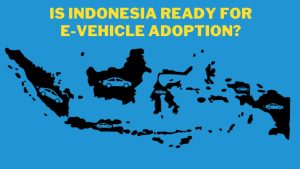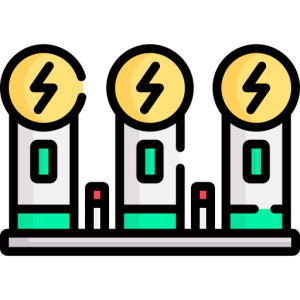
It’s been almost two years since I arrived in Switzerland and everyday life keep me quite busy. But I always try to get myself update about what’s happening in Indonesia, my home country. The fear of missing out is real when you’re 10’000 miles away from your family and loved ones. So, I opened the browser and typed in my favorite website news.
As usual, politic is the media darling. Boring.
(scroll)
Corruption. No surprise.
(scroll)
Finance & trading. Okay.
(scroll)
“Governments to give monetary incentive for new purchase electric vehicles…”
(stop)
Now, this is news!
The Incentives Policy
Long story shot, Indonesian government aims an ambitious target to promote electric vehicle adoption as a commitment to tackle climate change challenges. Monetary incentives policy is one of the approaches along with some other benefits offered. The representative of the government even arranged a meeting with Elon Musk and persuaded him to invest on battery manufacturing in Indonesia. The roadmap is beyond just promoting e-vehicles, but also to build the supporting manufacturing facilities in the country.
But, wait a minute..
I thought to myself, it is indeed a brave decision to make. I’m excited to see things developing, but I am too questioning “Is Indonesia ready for electric vehicle adoption?”. My question is purely based on my personal experience in driving electric car in Switzerland. Even at the level of developed country, Switzerland is still continuously reviewing and improving regulations, policies, and supporting infrastructures. Why is it important? Simply because, the more accommodating these three aspects, the greater the public’s perception. It will escalate EV’s driving experience and convince more people to shift into EV.
Why I think Indonesia is not yet ready for EV
Enough blabbering and let’s go back to why I have this question burning in my mind. So, here’s why I question if Indonesia is ready for electric vehicle:
EV is extremely pricey 
Investopedia defines purchasing power as the amount of goods or services that a unit of money can buy and usually expressed in currency value. A research from Prasetyo stated that the average of car purchasing power in Indonesia is around IDR 200 million (CHF 12.108). Data from CNN Indonesia shows that the cheapest e-car is Wuling Air EV short range with IDR 295 million in price. Other available e-cars in the market also includes Hyundai Ioniq 5, Nissan Leaf, DFSK Gelora E, and Toyota bZ4X that ranging from around IDR 400 million to IDR 1 billion. With the provided figure, I do think e-car is beyond the purchasing power of most people in Indonesia. It might be the biggest barrier for Indonesian to shift to electric vehic
Charging Infrastructure
 Indonesia is currently operating 200 charging stations to accommodate the e-vehicle (Jati, 2022). With the target of 400.000 e-cars and 1.8 million electric two wheelers by 2025 (IESR, 2023), the government has to rapidly build adequate charging stations in parallel with e-vehicle promotion. As charging stations are inseparable part of e-vehicles, this concern has to be properly addressed. Otherwise, public won’t be convinced to shift their vehicles into electric.
Indonesia is currently operating 200 charging stations to accommodate the e-vehicle (Jati, 2022). With the target of 400.000 e-cars and 1.8 million electric two wheelers by 2025 (IESR, 2023), the government has to rapidly build adequate charging stations in parallel with e-vehicle promotion. As charging stations are inseparable part of e-vehicles, this concern has to be properly addressed. Otherwise, public won’t be convinced to shift their vehicles into electric.
Range Anxiety
This point is strongly related to charging infrastructure. Sufficient number of charging infrastructure will solve range anxiety of EV’s drivers. EV Connect (n.d. )describes range anxiety as anxious feeling of EV drivers that the vehicle battery will be drained before reaching the nearest charging station. Hence, building sufficient number of charging stations is crucial to ease driver’s range anxiety. With the figures mentioned on the previous point, public will certainly think a million times to purchase e-vehicle knowing range anxiety is a real threat.
Low awareness of e-vehicles and the benefits 
A research by Azis et al. (2020) results in a fact that majority of Indonesians is unaware of technology and the fact that they can drive e-vehicle. It is highly possible that they’re lack of understanding what makes e-vehicles better than combustion engine’s vehicles. Again, government has to tailor public campaign to introduce e-vehicle, its benefits, and how shifting into e-vehicles can contribute in tackling climate change.
These are some barriers resulted from compilation of research and my personal observation. Surely, it’s still a long way until Indonesia successfully implementing this action. Thorough research and study have to be done to ensure a proper execution that leads to the desired results. Anyhow, I’m convinced this good intention may positively impact the whole country.
So, what do you think? Is Indonesia ready for e-vehicles? Any other barriers or opinion that correlates with e-vehicles implementation? Feel free to leave comment below! Don’t forget to share this content with your network!


